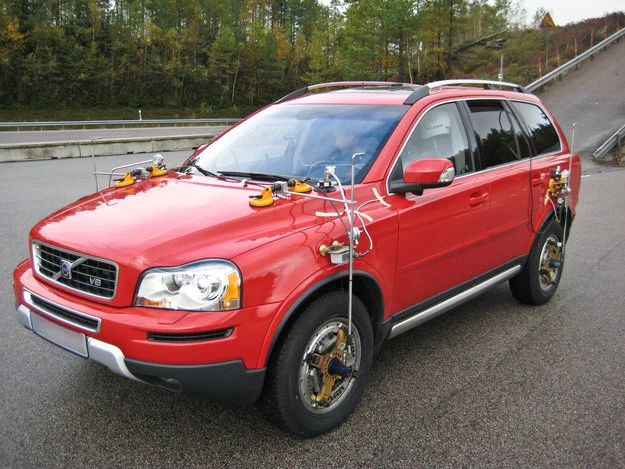A European Space Agency (ESA) business incubation start-up company is helping major car manufacturers to develop electric vehicle concepts and improve safety systems by turning ideas quickly into virtual prototypes.
“Foreseeing products by modelling and simulations can provide big jump-starts for companies,” explains Johannes Gerl, founder and CEO of German start-up company Modelon GmbH.
They reduce their development efforts by saving on the number of prototypes. In addition, they often reduce the time to market.”
Supported during their start-up phase by ESA Business Incubation Centre Bavaria, their Modelica simulation libraries are now used by industry in several countries for modelling the behaviour of complex automotive and energy systems.
The company’s simulation approach has been used by car manufacturers to develop a wide range of novel e-mobility designs such as more efficient hybrid and electric automobiles.

Engineers at Japan’s Toyota company use Modelon’s simulation libraries in developing novel e-mobility vehicle concepts such as their i-Real for easy city transportation and short commuting. Small, electric and lightweight, i-Real is almost an armchair controlled by two joysticks. Toyota modelled, simulated and optimised it with Modelon’s Vehicle Dynamic libraries.
Another customer is Sweden’s Volvo. Here, engineers use Modelon’s libraries for improving car safety systems. Real-life testing using physical prototypes is time-consuming, expensive and often unsafe for the test drivers.
“If you can represent the vehicle behaviour with a mathematical model, you have a great platform for active safety system development,” said Per Ola Fuxin, Manager, Active Safety Functions at Volvo Cars.

Complete vehicle models can be created from construction data and physical tests, and the results can be validated against similar real-life test cases.
“The overall aim is to help our customers save money by using virtual simulation methods and save the number of real prototypes, thereby reduce the development effort,” says Magnus Gäfvert, CEO Modelon AB.
“Like Toyota and Volvo, our simulation libraries are now used by several auto manufacturers. But we also have customers in other sectors. Our libraries have been used to improve the energy efficiency for aircraft, for modelling fuel cells, for hydro plant solutions and many more.

“We also worked with Saab Aeronautics to develop libraries in Modelica for simulating aircraft systems.”
The company’s engineering projects and its software development are based on the Modelica system simulation language initiated by Hilding Elmqvist, Swedish Dynasim, and the Functional Mock-up Interface simulation standard, both developed with contribution and technological leadership from the DLR German Aerospace Center Oberpfaffenhofen’s Robotics and Mechatronics Center.
Many of Modelon’s intellectual properties are based on these standards, translating the scientific ground work originally developed as technologies for space programmes into commercial non-space products. In the company’s Vapor Cycle Library, for example, a space technology was transferred to the automotive industry: the heat of emissions generates electrical energy.

Founded in Germany in February 2009, and then supported by ESA Business Incubation Centre (BIC) Bavaria during the company start-up, this German branch of Modelon has now grown to 33 employees with offices in Munich, Stuttgart and Hamburg. Modelon GmbH belongs to the international Modelon company group with offices in Sweden, Germany and USA.
“Modelon is another start-up success from our business incubation centre,” explains Thorsten Rudolph, Managing Director of Anwendungszentrum GmbH Oberpfaffenhofen, the company contracted by the Agency to run ESA BIC Bavaria.
Yearly, 60 start-ups like the Modelon company are supported at the seven ESA BICs in the Netherlands, Italy, Germany, the UK and Belgium, totalling more than 180 to date. Part of ESA’s Technology Transfer Programme, the BICs inspire and help entrepreneurs to turn space-connected business ideas into commercial companies developing products and services in non-space areas.
“The entrepreneurs come with their ideas and we support them with commercial and technical assistance to help them start up their businesses. Right now, we are helping another 15 new start-ups in our incubation centre,” adds Thorsten.






